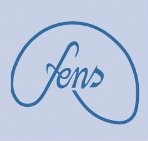Advanced Course in Computational Neuroscience 2011
A FENS-IBRO Training Centre
Będlewo, Poland, August 1-26, 2011
About the course
NEW (2011.07.19): Under Venue I started a section with Frequently Asked Questions. Check it out before emailing me. If you do not find an answer, however, do write me. D
The Advanced Course in Computational Neuroscience is for advanced graduate
students and postdoctoral fellows who are interested in learning the essentials of the field.
The course has two complementary parts. Mornings are devoted to lectures given by
distinguished international faculty on topics across the breadth of experimental and
computational neuroscience. During the rest of the day, students are given practical
training in the art and practice of neural modelling, by pursuing a project of their
choosing under the close supervision of expert tutors.
The first week of the course introduces students to essential neurobiological concepts
and to the most important techniques in modelling single cells, networks and neural systems.
Students learn how to solve their research problems using software packages such as MATLAB,
NEST, NEURON, XPP, etc. During the following three weeks the lectures cover specific brain
areas and functions. Topics range from modelling single cells and subcellular processes
through the simulation of simple circuits, large neuronal networks and system level models
of the brain. The course ends with project presentations by the students.
The course is designed for advanced graduate students and postdoctoral fellows from a
variety of disciplines, including neuroscience, physics, electrical engineering, computer
science, mathematics and psychology. Students are expected to have a keen interest and basic
background in neurobiology as well as some computer experience. Students of any nationality can apply.
A maximum of 30 students will be accepted. We specifically encourage applications from researchers who work
in the developing world. These students will be selected according to the normal submission
procedure.
Applications, including a description of the target project must be submitted electronically and will need to be accompanied by the names and email details of two referees
who have agreed to furnish references. Applicants will need to ensure that their referees
have submitted their references. Applications will be assessed by a committee, with selection
being based on the following criteria: the scientific quality of the candidate (CV) and of the
project, the recommendation letters, and evidence that the course will afford substantial
benefit to the candidate.
Download the leaflets: A4, A5, Letter.
Download the poster: A2.
Previous Courses
2010 Advanced Course in Computational Neuroscience.
All the previous courses.
Funding
The 2011 Advanced Course in Computational Neuroscience is supported by
the Programme of European Neuroscience Schools and various academic and private institutions.

|



